|
When you are looking for a partner or contractor the most important step is verifying the business registration for a company. For this the good news is there are multiple ways through which you can check if the business is registered by the united states. Some of them are: Check with the State Business Department There is no central business registration in the United States. Businesses are registered with the state governments in the states where they are headquartered. To check if a business is registered with the state, you can contact the Secretary of State's office in that state. In order to find contact information for the Secretary of State's office in a particular state, you can visit the website of the National Association of Secretaries of State. Use Online National Directories One way to check if someone is registered is to look them up in an online national directory. There are many online directories that list in the United States, and most of them are free to search. There are a few ways that you can use online national directories to check if a business is legitimate. One way is to check the Better Business Bureau's website. You can also do a search on the business name in Google. If there are any negative reviews or articles about the business, that is a red flag that you should avoid doing business with them. Another way to check if a business is legitimate is to look up their address in an online national directory. If the address is not listed, that is another red flag. You should also avoid doing business with any businesses that have a P.O. Box for an address. Finally, you can contact the Better Business Bureau and ask them if they have any information about the business. If the business is not listed with the BBB, that is a definite red flag. Check the Patent and Trademark Office In order to check the registration of a company through patent and trademark office you should first go to the United States Patent and Trade Mark Office. From there you should look for “find it fast” section from where you can search the directories. Use the SEC’s EDGAR The SEC's EDGAR system can be used to find information about the registration of a company. • Go to the SEC's website at https://www.sec.gov/. • Under the "Filings & Forms" heading, click on the "EDGAR Company Filings" link. • Enter the name of the company in the search box and click "Search." • Click on the company's name in the search results. • Click on the "Registration Statement" link. • Scroll down to the "Registration Statement" section. • Click on the "Company Registration Statement" link. • Review the information in the registration statement. Not Every Business is Registered Before you start looking for the right business to work with it is important to understand that not every business is registered with the state. So, there are plenty of businesses that are not necessarily in the good books which are still operating (illegally) or as a sole proprietorship which is legal and requires no or little paperwork.. If the business is not registered, you may want to consider another business instead. Article for Cox Business News by Maheen Kashif
0 Comments
How to sell your website Selling your website or online business might seem like a complicated process. When you add in steps to try to maximize the value pre-sale, things get even more complex. Below, we outline a 7-step process that will help you navigate this challenge. 1. Diversify Your Traffic Sources If your business is currently relying primarily on paid traffic and ads, you should diversify your traffic sources before considering a sale. In particular, you want to focus on increasing your organic traffic. Organic sources of traffic have higher profit margins, but that’s not all. Experienced buyers and brokers put a lot of value on long-term stability and ease of management. 2. Create Processes and Use Third-party Services Some types of websites and ecommerce stores require more involvement than others. If you are running an ecommerce store and are currently fulfilling your orders yourself, you should change that before selling the business. You must minimize your involvement in the business as much as possible before selling it. Potential buyers who have the capital to buy a business for a flat fee of tens of thousands of dollars aren’t looking for another full-time job. They are looking for ready-made investment opportunities. That typically means a business that’s automated and requires very little hands-on work. 3. Get Your Financials and Traffic Reports in Order Nobody is going to invest in a business that doesn’t have evidence of its finances and assets. If one of your online business assets is organic traffic or a social media following, take steps to document this properly. Keep in mind that marketplaces and brokers require months of verified financial and traffic reports. So make sure that you have installed Google Analytics or an alternative on your website. Sales reports can typically just be exported from any ecommerce tool and are less of an issue. 4. Choose the Right Marketplace or Broker Once you’ve dotted your i’s and crossed your t’s, it’s time to move on to the selling part. The first part is choosing the right place to sell it. 5. Know Your Potential Buyer and Customize Your Sales Page When you’re creating a page to sell your website, you need to know who your prospective buyers are and what they are looking for in a website. Watch this interview Empire Flippers did with a buyer and listen to his priorities and his fears. 6. Prepare Your Team or Virtual Assistants for the Sale Once you’ve decided to sell the business, you need to prepare everyone involved for the potential transfer of ownership. Ensure all the stakeholders understand the situation and that the core members are ready to help the buyer transition into the role of owner/operator. 7. Know What Your Site is Worth To avoid losing big, you need to know what your website is worth. Before you pull the trigger and sell your website, you should have a rough idea of what it could bring in. Article by patrick matthew for Cox Business NewsCrowdfunding with mainvest for startups It's a bit like crowdfunding platforms Kickstarter and Indiegogo, but instead of contributing money in exchange for an early version of a product, MainVest investors are actually lending money. They do so through a special kind of debt instrument that pays them back via a percentage of the business's revenue. MainVest co-founder and CEO Nick Mathews hopes the idea will solve two problems. On one hand, small businesses have a harder time accessing capital than fast-growing tech startups, especially since banks have been more cautious about giving out commercial lines of credit in the wake of the recession. On the other hand, many people are locked out of investing in the most promising companies due to lack of knowledge or because they're not accredited investors. MainVest aims to bring the two sides together, providing investors with a pool of opportunities and businesses with a suite of tools to help them corral a herd of investors and handle all the necessary regulatory paperwork. This type of online fundraising was made possible by the federal JOBS Act in 2012. The U.S. Securities and Exchange Commission put final regulations into place in 2016. “It allows people to actually vote with their wallets and really have a say in shaping their communities,” Mathews said. “Businesses are going to have local allies and local evangelists, and they’ll have a competitive advantage in the market.” Mathews, who incorporated MainVest this spring along with co-founder Ben Blieden, was previously an early Uber employee and helped launch the ride-hailing service in the Northeast. “That first three years at Uber, our mission and our belief was really around economic empowerment” for drivers, Mathews said. In his view, that mission faded as the company grew, but he began to look for new ways to support independent business owners. Mathews said MainVest has been working with economic development agencies in multiple cities to identify businesses that might be interested in the site, which takes a 6 percent cut of successful fundraising campaigns. When MainVest launches this fall, it will have between 10 and 30 profiles for businesses in the Greater Boston area, Mathews said. One of them will likely be Wears Woody, a Cape Cod-born beachwear retailer that wants to raise money for its first brick-and-mortar location. Wears Woody founder Mike Norwood said he's always taken an unconventional approach to growing the company, which started off selling flip-flops and sunglasses to beachgoers out of the back of a station wagon named Woody. He sees MainVest as a way to raise outside funding for the first time while still remaining true to Wears Woody's loyal customer base. “We want to make stuff differently, we want to market it differently, and sell it differently," Norwood said. " I see MainVest as a vehicle for us to be able to legitimately and with structure fundraise and galvanize a community for us that we know exists." The retailer also donates 25 percent of its profits to diabetes-related nonprofits, and Norwood hopes people from that community will contribute to the funding as well. Wears Woody will likely try to raise enough money to build out a physical location somewhere in Greater Boston that combines a retail shop with a lounge-style space for customers and an inventory warehouse. edit. Article by patrick matthew for Cox Business NewsThe internet has made it very easy to interact with multiple businesses for multiple purposes. But the downside is the cybercrime and the criminals that can hack our devices and can steal our information. Fortunately we have some methods through which we can identify if the online business is legitimate or not. Check the URL First, make sure you have the correct web address. If you find yourself on the wrong website, do a web search for the company, product, or service you’re looking for. • Look for signs of a secure website Look for a URL that begins with “https:”—the “s” stands for “secure.” • A padlock or unbroken key (depending on your browser) in the browser’s address bar while viewing a website is also a good indicator of a site’s security. • Check your browser’s security settings. • You can also access your browser’s settings to ensure that it alerts you to suspicious or fake websites. Look closely at the content If the site's content is well-written and free of grammar and spelling errors, it is more likely to be a legitimate site. If the site's content is poorly written and full of grammar and spelling errors, it is less likely to be a legitimate site.
If the site provides a physical address, email address, and/or phone number it is more likely to be a legitimate site. If the site does not provide any contact information, it is less likely to be a legitimate site. Find out who owns the web domain To find out who owns a web domain, you can use a WHOIS search. A WHOIS search will show you the registrant (owner) of a domain name, as well as their contact information. This can be useful if you're trying to figure out if a website is legitimate, or if you're trying to contact the owner of a website. To do a WHOIS search, you can go to a WHOIS search site like Whois.net or Whoisology.com. Check for reviews You can also check the reviews of a website in order to know if the site is legit or not. for this a good place to start is the Better Business Bureau's website. You can search for the website in question and see if there are any complaints or reviews. Another good place to look is SiteJabber, which has reviews of all types of websites. Check for a privacy policy Some companies will post a privacy policy on their website. This helps you learn how your information will be used and helps you hold the company accountable for their actions. You can easily search the web for the company’s privacy policy. If you can’t find it, you may want to choose another company to work with.. A turning point that is essential to know what is the market value of your business. This information helps you in selling your business. The most important thing is how can you convince the buyer to buy your business. It's also important to know the site where you have buyers related to your business. Here I would like to break down the points you can get the best way to increase the chances of selling your website. Reach out to the targeted audience: When you identify the buyer you can improve, and modify the website so that buyer shows interest. Your work must according to the market. Long-time projects going on your website help you in selling. Make sure the audience will like your work and it will encourage the audience to buy your project. Once you have identified the right kind of buyer you should approach them in the right way. Value of your website: You should have the idea before creating the page. there is a difference between what you think is the worth of the business and what the buyer is willing to pay. To avoid a big loss, you need to know what your website worth is. Your website must have the potential for long time growth and revenue. For example, if your content is ranking on google for a long time the bidders will attract to buy. Select the best marketplace: First thing is to choose a good marketplace where you will get maximum profit and revenue. . Auction is the platform where buyers can place bids for your business. Philippa, I suggest you select flippa because it is the best for startups and smaller websites. A broker will help you to find investors and negotiate the price with investors. investment bank this is also a platform and it is for larger deals which means millions of dollars. Why buyer would pay you a premium? To maximize what buyers offer you, keep the focus on two core things: Return on investment and relative risks. The business has fewer risks and also has a higher premium. Risky businesses with lower profits will fall lower-earning scale and be difficult to sell. Investor often invests their money where the chances of profit are much higher than they invest. If your website has credibility, effectiveness, and attraction you will be able to sell easily. Optimize your profit margin: As above SEO is a necessary tool to know the audience target and the requirements of the buyer. I say it is the backbone of an authentic and reliable website. Usually, buyers ask the owner and manager of the website, "is your website optimized"? If yes they will negotiate with the owner and if the answer is no, they won't think twice and will move on next thing. However, there is a question why is optimizing your website while you are selling it.? It may help in ranking each page on google and buyer can estimate why your website is better than others.
A turning point that is essential to growing your business is " what is worthy of your website". you are going to sell your website one thing to keep in your mind is how much value your business has. The most important thing is you should pre-estimate where you can reach out to the buyer who will be able to pay the appropriate payback. Here I would like to break down the points you can get the best way to increase the chances of selling the website. Reach out to the targeted audience: When you identify your targeted audience, you can improve, and modify the website to suit the interest of your potential buyer. Your work should be according to the trend. And evaluate the long-term project will help you to sell a website and generate profitable revenue. Make sure the audience will like your work and it will encourage the audience to buy your project. Once you have identified the right kind of buyer you should approach them in the right way. Value of your website: You should have the idea before creating the page. there is a difference between what you think is the worth of the business and what the buyer is willing to pay. To avoid a big loss, you need to know what your website worth is. Your website must have the potential for long time growth and revenue. For example, if your content is ranking on google for a long time the bidders will attract to buy. Select the best marketplace: First thing is to choose a good marketplace where you will get maximum profit and revenue. . Auction is the platform where buyers can place bids for your business. Philippa, I suggest you select flippa because it is the best for startups and smaller websites. A broker will help you to find investors and negotiate the price with investors. investment bank this is also a platform and it is for larger deals which means millions of dollars. Why buyer would pay you a premium? To maximize what buyers offer you, keep the focus on two core things: Return on investment and relative risks. The business has fewer risks and also has a higher premium. Risky businesses with lower profits will fall lower-earning scale and be difficult to sell. Investor often invests their money where the chances of profit are much higher than they invest. If your website has credibility, effectiveness, and attraction you will be able to sell easily. Optimize your profit margin: As above SEO is a necessary tool to know the audience target and the requirements of the buyer. I say it is the backbone of an authentic and reliable website. Usually, buyers ask the owner and manager of the website, "is your website optimized"? If yes they will negotiate with the owner and if the answer is no, they won't think twice and will move on next thing. However, there is a question why is optimizing your website while you are selling it.? It may help in ranking each page on google and buyer can estimate why your website is better than others.
A sale-leaseback is an agreement between seller and buyer. The seller sells the property to the buyer for some time. In commercial real estate, the property involved is a building, the land itself. The seller agrees on these terms and conditions that he pays all taxes, maintenance, and all others. The control and use of the property is a vital factors for real estate users. Real estate leaseback takes place for a long period it may be in several years. Convert assets into cash: In a sale-leaseback, the seller gains his property after the agreement end. At the same time seller adjust his terms for leaseback. The seller takes a handsome amount after giving his assets to leaseback. The seller may receive 100% market value of his property. This way the owner has an opportunity to convert his property into cash and the property remains his own. A new way of financing: A seller can structure the initial term and condition of the lease that meet his needs. All burdens can be removed by the seller to adjust the time frame and all basic things by himself. Nowadays it has become a new way of financing. Sellers can make new terms and conditions according to their needs. Under a sale-leaseback arrangement, a buyer can choose better financing terms than the property owner. If the property owner wants to continue the leaseback agreement then the buyer can also. It depends on both parties' agreement to extend the time. Advantages of sale-leaseback in real estate: There are some advantages of real estate sale-back. ⦁ Cost recovery in this transaction method is easy. Depreciation also recovers when the seller sold the property. ⦁ If you add interest rate as a period of time passes it can be used as a tax payment. ⦁ Its main benefit is that you remain the owner of your property after selling it. ⦁ You are not bonded to anyone in selling, or improving the property and in terms of the agreement. Bottom lines: A sale-leaseback transaction is an attractive method in real estate. If you have owned property and want to lease it, this gives you financial benefits. It may be a building, warehouse, or even a part of the land. You can also put a point to increase your cash every year or you may take it at the start. If you are taking land on the lease you need to understand the value of the agreement and its legal aspect. The seller also views all these points deeply. As a seller, you need to first protect your assets legally and then move further. If you want to lease land as a seller or as buyer i hope this material could help you in this regard. In real estate factor saleleaseback is high in demand because if you want to start a business you need land. First you try to take land on lease then after successful business you can take your own property.
 Business loans for real estate transaction with bad credit. Bad credit is the main hurdle in obtaining loans for the commercial real estate businesses. However, these low credit scores will not inhibit you always from getting small business loans. Whenever any businessperson requires a bad credit loan, the business person should make use of personal credit resources and business credit resources. Try getting a Pre-Qualification for Loan, however when a business has poor cash flow and bad credit, banks and lenders focus on documented financial history and assets of the business instead of your credit score. To qualify for a business loan with bad credit you could follow these steps: Improving personal credit: Personal credit can be improved by reviewing credit reports, making on-time payments, lower credit usage, and removing late payments as well as Improving your businesses credit score: Improving your credit score can be improved by making a line of credit, on-time payments, separation of business and personal expenses, and incorporating your business or making an LLC. Loans available for bad credit Bad credit business loans have different types based on terms & conditions and qualifications. Other than banks and traditional lenders, some alternative lenders such as online lenders are available to offer small business loans. The following types of business loans are provided for small businesses by traditional and alternative lenders: Term loans: Term loans are provided to borrowers as lump sums with certain terms & conditions of paying fixed amounts to their lenders. Line of credits: A line of credits is similar to business credit cards provided to government and businesses to help the borrowers in cash flow crises. With a business line of credit, a pool of funds known as a revolving line of credit is approved by the lender which is to be returned with interest amount. Invoice Financing: If a small business has cash flow issues due to a lack of balances & payments by customers, invoice financing is the best option to deal with. In invoice financing, the business can sell their invoices to their lender at discounted rates and receive advance amounts on them. Merchant Cash Advance: It is a cash advance provided to a business on the future sales of one’s business in exchange for a percentage amount of future credit and debit card sales. The lenders provide the business with a cash advance in which they pay back a percentage of their customer’s repayments.
Peer-to-Peer Loans Peer-to-peer loans or peer-to-peer lending is an online system of lending money to individuals and businesses through an online platform. This is a new platform where individual lenders and borrowers directly connect by cutting out middleman expenses. On peer-to-peer sites, the lists of loan amounts are posted online. Eligible borrowers indicate the proposed loan amounts, and purpose of the loan and then apply for the loan amount. Secured Commercial loans A good option for obtaining a loan is through a secured commercial loan. In a secured commercial loan plan, the borrowers can get a loan in exchange for some assets in form of collateral. In case of failure in repayment of a loan, the lender might ask and claim for any assets that the borrower owns. Getting loans with bad credits can be a big mission to undertake but still paying them promptly will improve credit ratings. How to sell a website
What is a sale-leaseback program? It's a financial agreement between two parties. The seller party becomes the lease and the new owner becomes the leaser. It's a unique procedure of financing for long terms. In a sale-leaseback, you sell your equipment, land, or anything else that the buyer needs to it. An agreement between two parties for the period is usually for the long term. A new buyer bond to return the asset to the previous owner after an agreement expire. If you want to take something on the lease we provide you with all the necessary information. We also provide information as a seller. We discuss benefits and compare them with loans also. When do I need a sale-leaseback? Why do you need to sell-leaseback a thing, property, and any equipment you own? It's all matter of money. When you have an asset that is valuable in the market you can sell it as a leaseback. It increases your wealth and you can focus more on your project. When you feel that your company needs cash to run you can also sell-leaseback some equipment. It's most important in the real estate sector where you give land for some time. You can also use this opportunity when a third party needs something valuable to them. How much financing recover? Sale-leaseback is helpful in financing. It increases your company's credit and improves your balance sheet. This factor depends on the condition of your equipment and its market value. Many factors affect the value and cash you get from it. It depends on the asset customer available in the market this factor all effect value. You may get 50 to 100 percent value of your asset. There is no fixed limit to it. If you have an asset in the marketplace and have customers you can get a handsome amount. Working Principle of sale-leaseback: In the real estate sector leaseback transactions follow two rules to carry on the agreement. 1) Property owners agree to sell it to investors for some time at a fixed price. 2) The new owner agrees on terms and conditions. He also agrees to lease the property back to the occupant for a long-term period. These rules of the agreement allow the seller to remain the occupant of the property. Same as the rule for all assets under the lease. So, seller and buyer generate cash flow. Compare loan and sale-leaseback: Sale-leaseback looks like a loan but it has many different aspects as compared to a loan. Are you thinking about that are you taking a loan? or giving an asset as a leaseback? This factor depends on you how much you need capital. You can also compare both loan and leaseback. If you get the same situation when you get a loan and the same as a leaseback. Then leaseback is your 1st priority. The loan you get is shown on your company cash sheet. Leaseback provides you with benefits that you remain the owner of your asset and get a handsome amount. It maintains your company's reputation.
How Long Does A Credit Card Balance Transfer Take? A credit card balance transfer usually takes five to seven days to process, although some large credit card issuers require clients to wait up to 14 or even 21 days. Read on if you're thinking about acquiring a new balance transfer credit card and want to be sure you know how long the transfer will take and whether you should make one at all. How does a balance transfer credit card work? A balance transfer credit card allows you to transfer a portion or all of the balance from another credit card or store card to your Capital business or personal credit card. Small business entrepreneurs can get a revolving line of credit with a set amount using a capital business credit card. A small business owner determines which employees are eligible for a company credit card. However a capital business credit card, like a consumer credit card, charges interest if the balance transfer is not a full payment. Balance transfers are handled differently by different credit card companies. Some firms handle balance transfers electronically, while others send you balance transfer cheques to mail to the credit cards you're paying off. Some credit card companies will let you transfer debt from a school loan, a personal loan, an auto loan, or a home equity line of credit to your credit card. Why does transferring a credit card balance take so long? It can be unpleasant to wait for a balance transfer from one credit card to another to complete, especially if you have a payment due soon. Here's how long it might take with some credit card companies. Not withstanding what has been said in the first paragraph of this article,depending on your card issuer, a balance transfer could also take up to six weeks to appear in the account you're transferring the money to. While many issuers can complete the procedure in a week or less, it's not a situation where you can "set it and forget it." You can track the progress of the transfer by checking your accounts. More so your new card issuer will need to organize the balance transfer with your previous sender once you've been accepted for a balance transfer. As promised in the first paragraph of this article, we’ve put together a top list of credit card issuers below,if you're thinking about acquiring a new balance transfer credit card. Top Best Balance Transfer Credit Card Wells Fargo Reflect℠ Card U.S. Bank Visa® Platinum Card Citi ® Double cash card Bank Americard ® Credit ® Card Chase Slate Edge Citi ® Diamond Preferred ® Card Citi Simplicity ® Card Citi Rewards +® Card Chase Freedom Flex℠ Navy Federal Credit Union Platinum Credit Card This article was proudly written
1. Get a Hard Money LoanGetting a loan from a hard money lender is a great option for real estate investors with bad credit or less than stellar credit. Despite its name, “hard” money isn’t hard to come by its actually suer easy — it’s literally anywhere you look it seems like. Hard money lenders are private firms or individuals or or even a group of friends who offer short-term loans that are backed by real estate. These lenders are only interested in investment deals — they aren’t funding someone who wants to buy a house to live in typically. The best part is that hard money loans can give you funds very quickly — often, within days. That’s why so many real estate investors use this source. They’re quick, painless, and easy to turn around. Hard money lenders don’t consider credit scores as the “be all, end all.” They can determine who they lend to and what those loans look like. If your credit score is good, GREAT! But if not, your application is still more than welcome. The majority of the time, hard money lenders only care about one thing: if the deal is a good deal. Their main concern is the value of the home. If the numbers work, they’ll more than likely fund the deal, whether you walk in with a 780 credit score or not. A hard money lender will use the property as collateral. If you don’t pay them back, they take ownership of the property. That’s why they care about the numbers. If you bottom out, they’ll still make money. So, if you have a solid deal on your hands with good profit potential, a hard money lender will likely fund it — even if your credit score is just . . . eh. #2. Look For Private Money LendersAnother funding source to consider is private money lenders Private money can come from anyone looking for a return on their investment. This can be anyone from a structured lender to a friend, relative, business partner or acquaintance. Even if your credit score isn’t great, private money lenders can still lend to you, often with competitive terms. The quality and value of your deal are much more important to a private money lender than your credit score. Private money lenders don’t abide by a certain set of rules. So repayment terms, interest, and everything else is up for negotiation. And because it’s that person’s own cash, they decide whether or not they run your credit. If you can show your deal has value and that you can close quickly — and make a profit quickly -- private money lenders can overlook dings on your credit report.  #3. Consider Wholesaling/Flipping via an option to purchase.
|
Archives
May 2022
Categories |



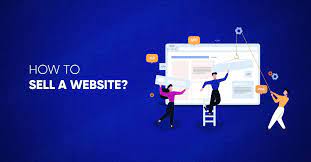
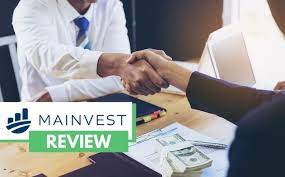


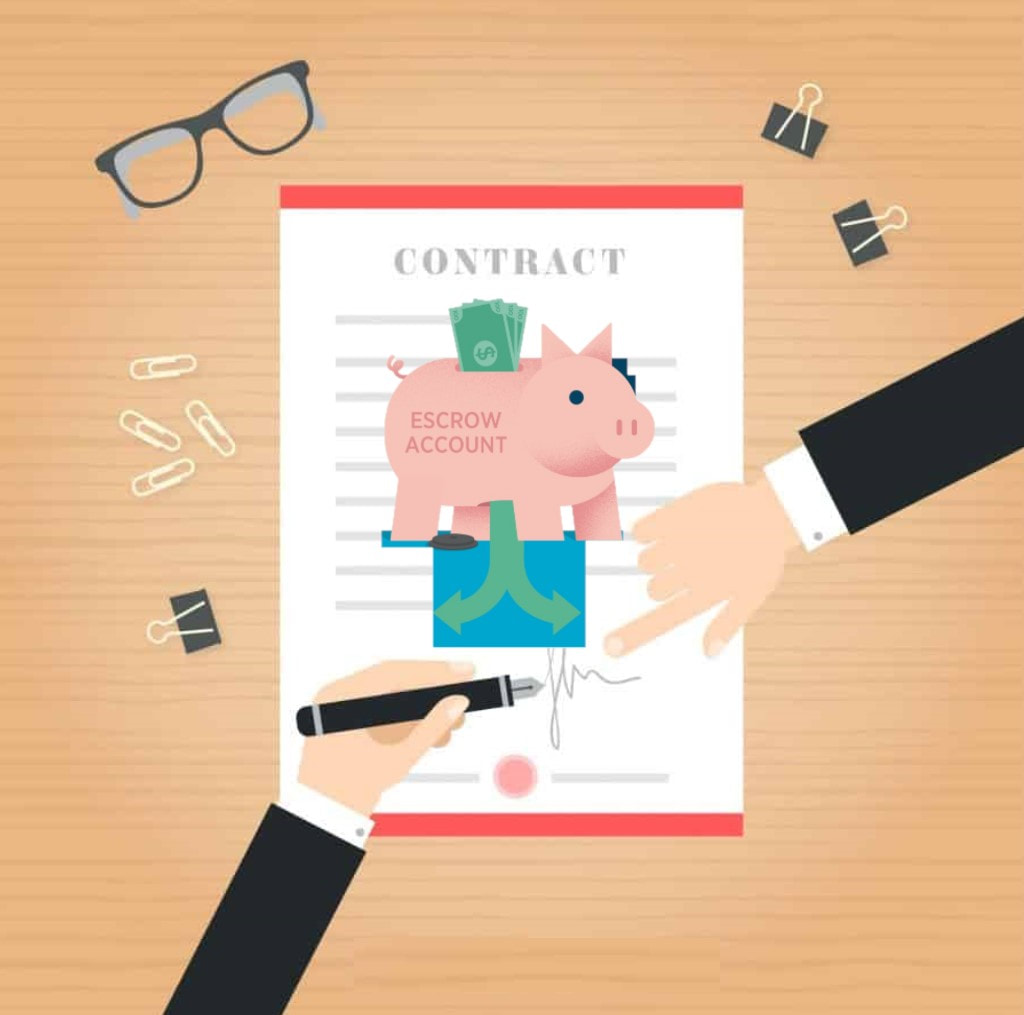





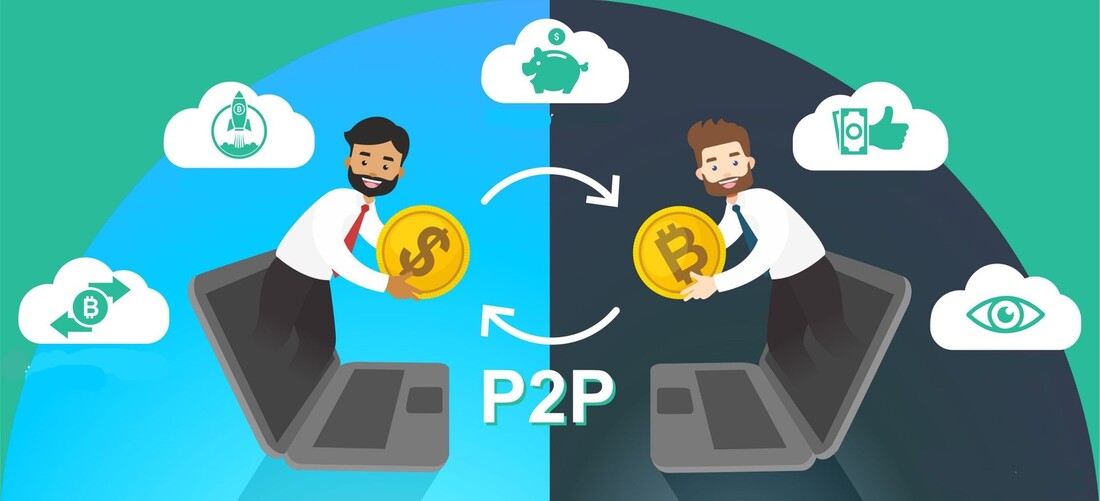

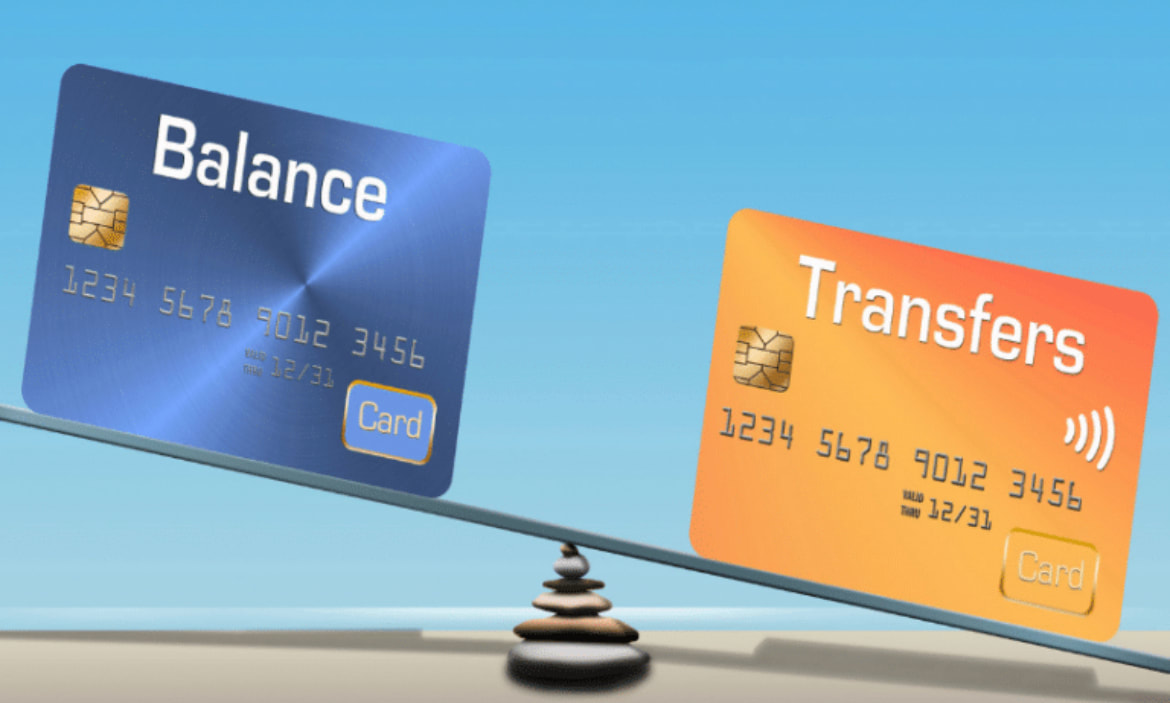

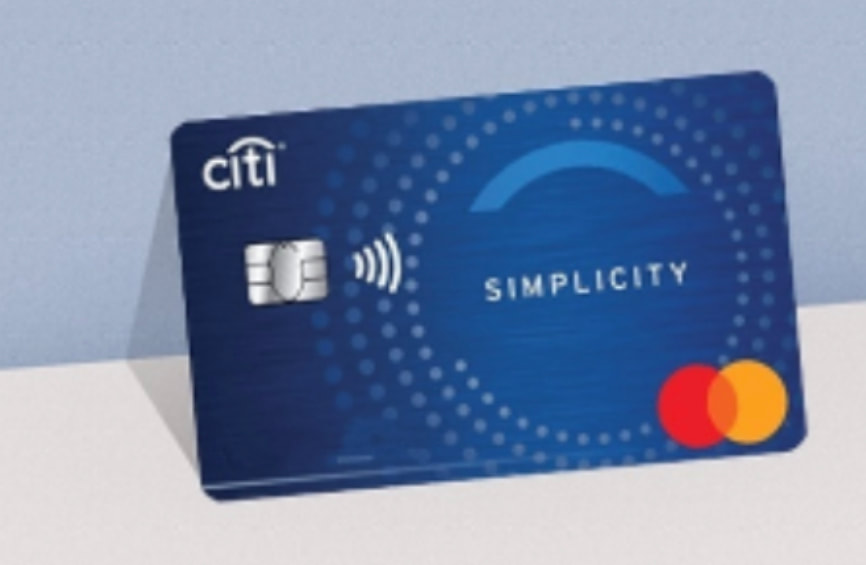

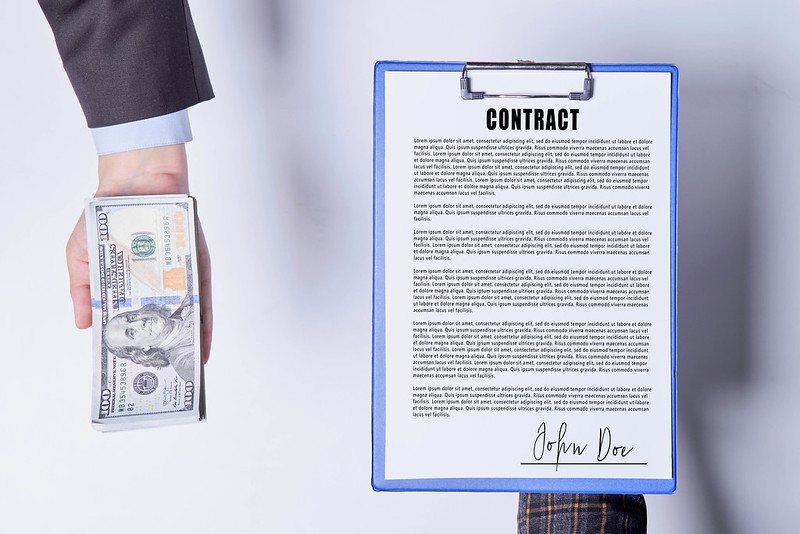
 RSS Feed
RSS Feed